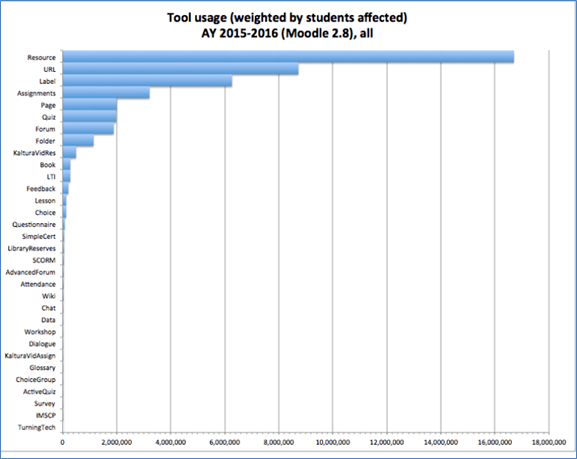Smart Learning Management Systems: Place Your Bets
It’s going to be a really long time (if ever) before any LMS will be able to supersede the human teacher’s ability to monitor human student cognitive load and levels of engagement real-time to varying degrees of accuracy (of course)—and, in the ‘low-tech’ classroom, this is done en masse to boot.
Moreover, a good teacher, also drawing on nuances of culture-specific body language and tone of voice, can react accordingly by using a toolkit of teaching strategies to help to make content clearer, more adaptive or more personalised—depending naturally on how motivated or unmotivated the teacher is feeling.
From a techie point of view, isn’t how the human teacher actually does this really cool?
Conversely, isn’t the act of putting suitable content for ‘high-tech’ LMS work hard enough? Content in static 2D, 2D/3D video, interactive 2D/3D, xR-mixed requires a team of dedicated professionals too.
However, trying to replicate ‘traditional’ classroom learning kinetics by attempting to make LMS content and related activities adapt dynamically (somehow) to an interpretation of real-time data pertaining to the content-consuming student’s cognitive load and engagement (with said content) might seem ludicrously futuristic.
But consider, for instance, iMotions’ growing range of promising real-time biometric data collection solutions (e.g. Eye Tracking, Facial Expression Analysis, Electroencephalography (EEG) , Galvanic Skin Response, ECG (Electrocardiogram)/ EMG (Electromyogram)–which, by the way, can all be integrated and synchronized within a unified software package. Also, I would assume biometric data can (theoretically) be fed into an LMS real-time using an API with a view to effecting the learning environment in some way. However, currently, doing that would be cumbersome to implement using the hardware, rather expensive to scale, and dependent on dubious interpretations of the data.
Imagine If Your LMS Could Be More Like A Human Teacher
It is precisely the ability to deal with the unpredictability of classroom or individual learning dynamics and the ability to reshape the lesson plan and its contents flexibly that the unintuitive content-bound mainly asynchronous LMS now lacks.
LMSs of the future will need to be able to observe and adapt to how you learn and think.
Let’s face it, most LMSs at the moment are just student management systems which ‘Dropbox’ the same content in the same way to all (so they're really more content management systems than Learning Management Systems). And those ‘purportedly’ pedagogically-sound, mainly text-based (social)-constructivist LMS activities are at best—dare I say—mostly clunky and just overrated.
Furthermore, upon reading a 103-page Learning Management System review undertaken by the University of Minnesota which was completed in 2017, it is clear based on a huge sample of over 100,000 student users in over 15,800 Moodle courses that students are essentially interacting with content distribution tools.
The pertinent observation arising from the implications of the screenshot below, which was taken from the University of Minnesota review, is that the predominant LMS-building-block components of learning design appear to comprise (and quite discouragingly might I say):
- the simple distribution of the fixed content to all;
- the attempted (most likely mainly summative) assessment of said content using the Quiz and/or Assignment tools;
- the use of the now timeworn and over-hyped text-bound Forum tool, which, Generation Z students, in particular, must surely be finding is really irksome;
- a smattering of other learning technologies that attempt, to questionable degrees of success or inconvenience, to facilitate student-to-student or student-to-teacher interaction.
Does any of the above, which may be disheartening, resonate with you in your new click-intensive, RSI-prone, mainly-solitary LMS teaching role?
Eerie, Geeky Or Rational?
So imagine if your LMS could be more like a human teacher, in the sense, that is, it could attempt to assess what your, 100-billion-nerve-cell, battle-tested human brain might be thinking and feeling.
Imagine it could adapt to you uniquely by maneuvering or leveraging learning approaches to meet realistic targets which are also based on real-world market needs or student life-cycle analyses.
Imagine LMSs being that smart.
But saying that wouldn’t it be lights out for the teacher?
Well, I doubt it, because the human teacher will always be advantaged intrinsically apropos of the teaching of the human student.
And, if that ever changes, well, one might wonder cynically what would be the cost-benefit of humans anyway, education or not.
However, don't panic, I really doubt any of this will happen any time soon. And if it does happen, it will almost certainly happen incrementally with accompanying educational ethical and philosophical debate (which will slow the innovation down or maybe kill it off).
In addition, I suspect most educational institutions are likely already ‘stuck’ trying to maintain what they’ve already got in their LMSs—and just attempting to scale new existing learning technologies within their LMSs may be overwhelming for many such institutions. Sadly, the larger the institution, well, the greater the challenge (and the slower the change) undoubtedly is.
So I guess all this smart LMS stuff may just be a pipe dream—assuming, that is, the combined maelstrom effects of, for instance, developments in AI, IT, Web 4.0 and biometrics, in a cheap-energy-dependent world which is in social, economic and political upheaval, don’t sway things towards the creation of such smart LMSs.
And I suppose that actually means it’s really okay to dream away!








